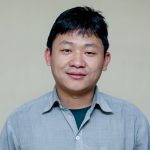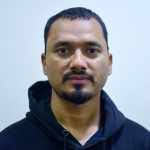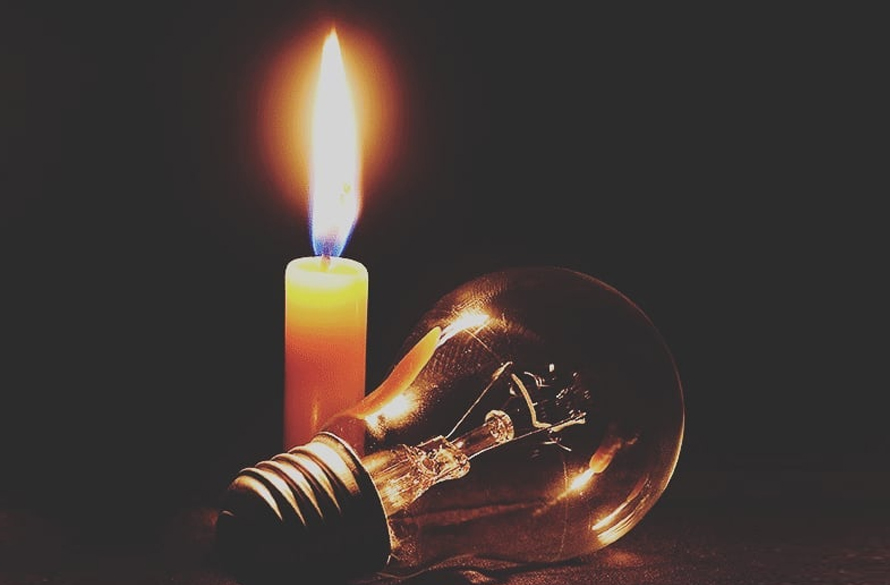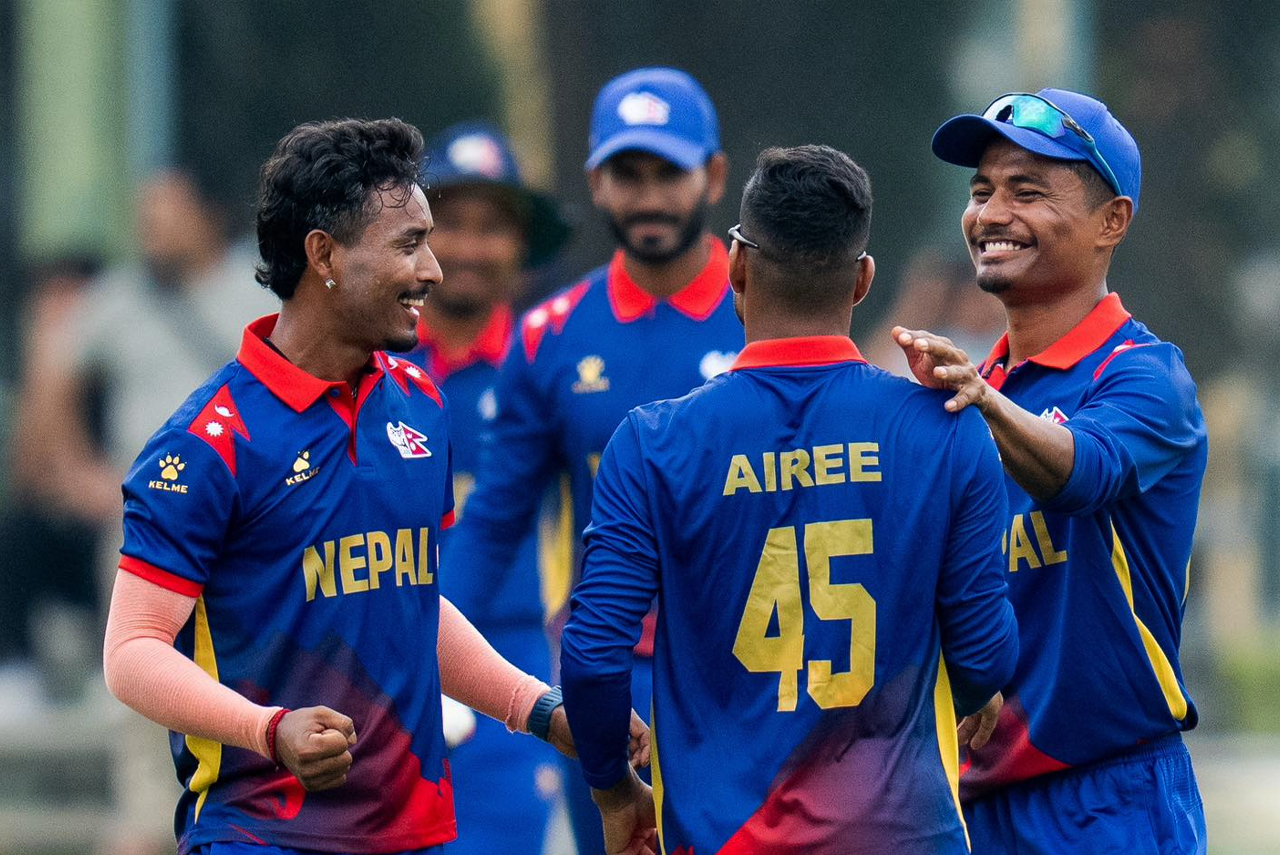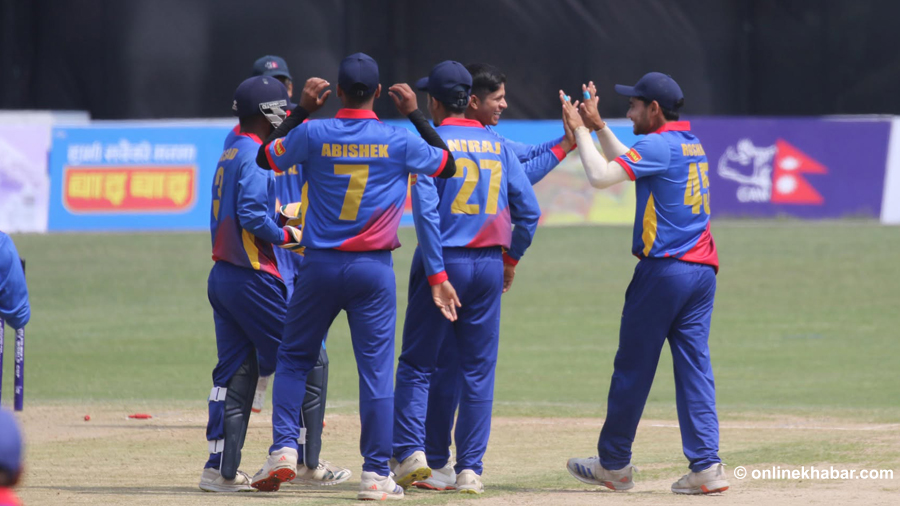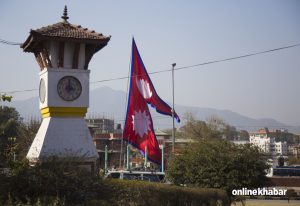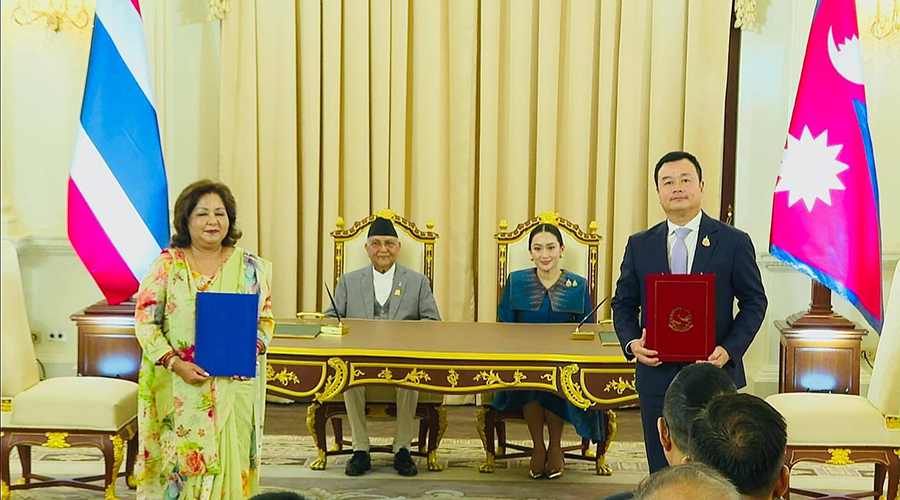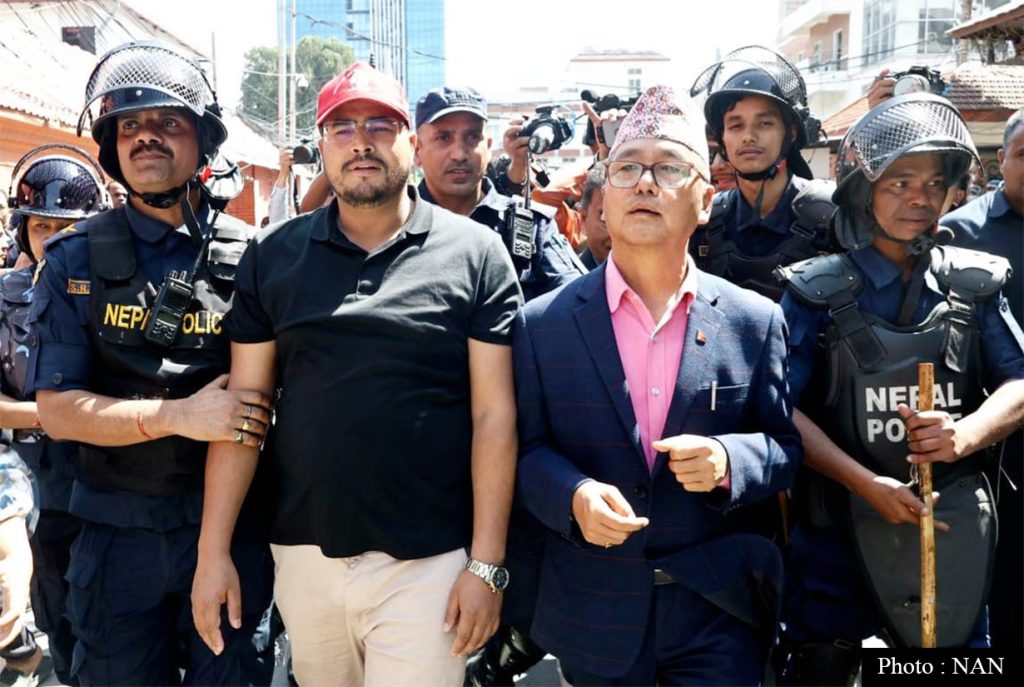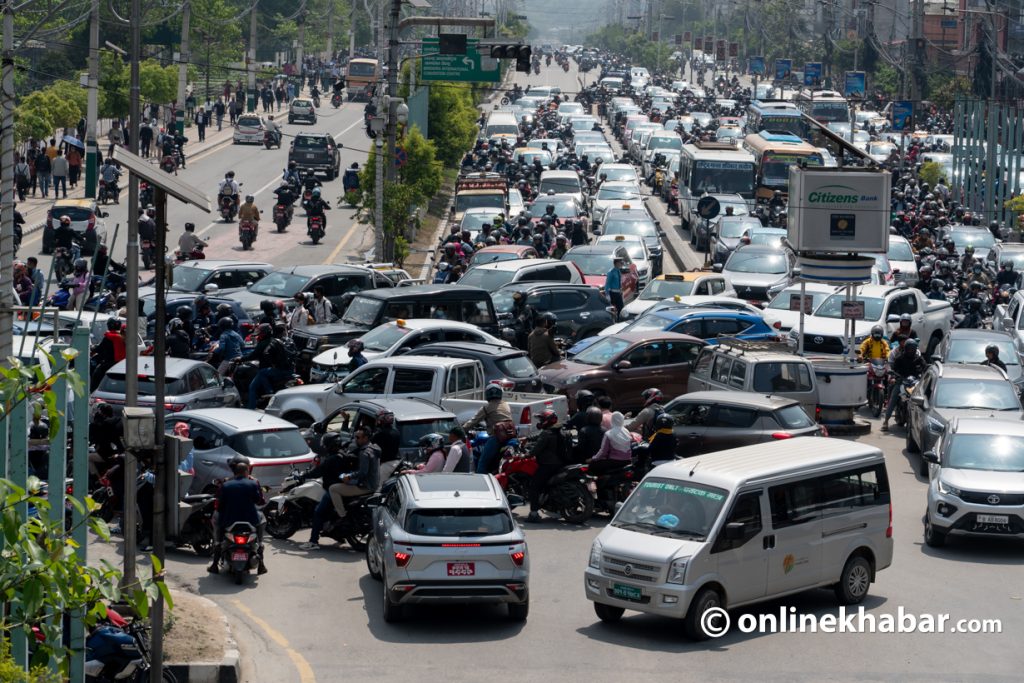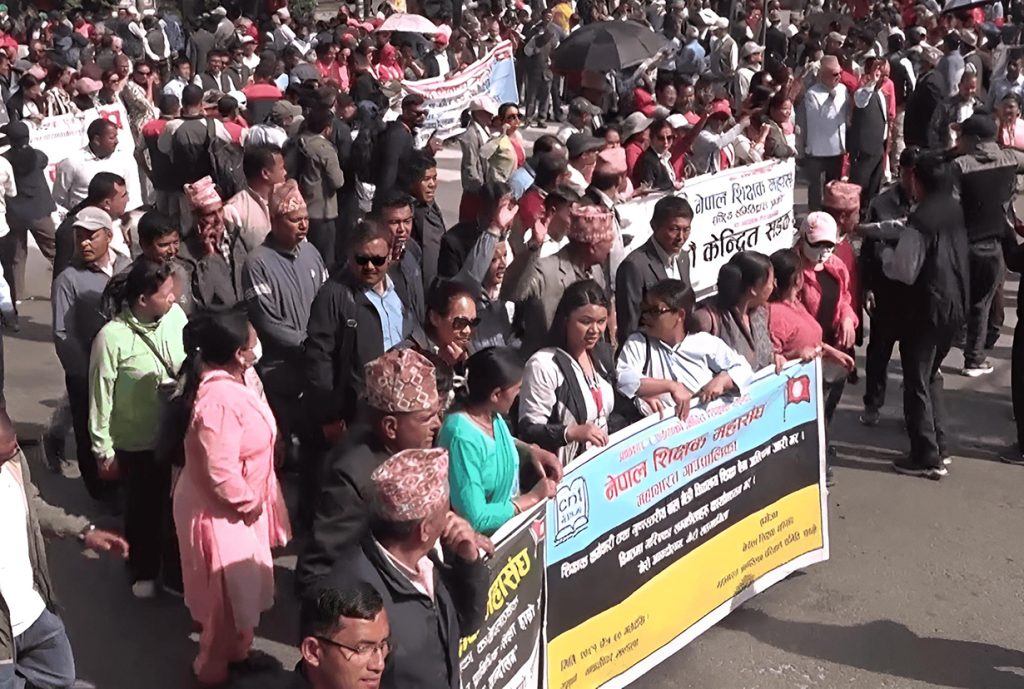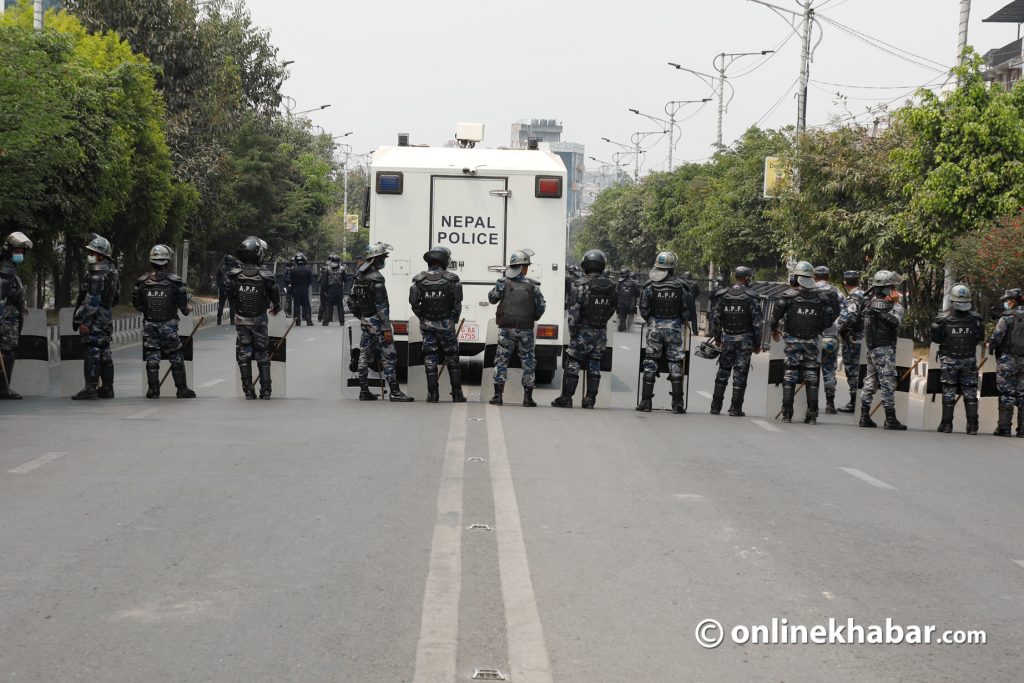
Alleging that Janata Samajwadi Party (JSP) Nepal President Upendra Yadav has been arbitrary within the party, seven members of the House of Representatives, including Ashok Rai, have split from the party.
Rai, Nawal Kishor Sah Sudi, Ranju Jha, Birendra Prasad Mahato, Pradeep Yadav, Hasina Khan and Sushila Shrestha have divided the party as Yadav, who flew to the USA on May 3 to participate in a programme, did not return.
Moreover, Upendra Yadav is returning to Kathmandu today after shortening his foreign tour upon receiving notice of the party split. He is scheduled to depart for Kathmandu tonight from Doha, the capital of Qatar. Yadav, who also serves as the health minister in the current government, visited the USA last week. He was supposed to be five days in America and two days in Qatar.
The parliamentarians who split from the party levelled serious accusations against Upendra. They speculated that with the convention approaching and the party president out of the country, he might be involved in a power struggle. This suspicion was fueled by Upendra’s positions as the deputy prime minister and health minister in the current government.
The parliamentarians, who argued that the party had to split because Upendra, who is himself the deputy prime minister, is attempting to overthrow the government, also raised questions about the party’s operations. They allege that Upendra has arbitrarily selected party members and representatives to manipulate the convention scheduled for June 9 to June 11.
“The convention should proceed in a clean, fair and neutral manner. That belief could not be generated in us,” Rai said about the justification of the party’s division, “When it is called a convention of unity, it is necessary to strengthen unity. But when there is an attempt to proceed unconstitutionally, it is not suitable for the movement and the party to tolerate it, so it has been decided to move forward in a new way.”
Rai argues that Upendra’s intention to form an all-powerful election committee from a meeting where the majority of executive members are absent for selecting convention representatives is misguided. He asserts that allowing the committee to determine its procedures, and rules, and have a decisive role in selecting representatives is contrary to the law.
But JSP spokesperson Manish Suman comments that those who split the party have taken the path of political suicide. Suman said, “When the date of the convention has been announced and the preparation has reached its final stage, they chose the path of political suicide because they did not trust their members and were afraid of defeat.”
He said that the decision of some people will not affect the party, organisation and members. It is an excuse whether it is a matter of membership or working style. “It is apolitical to make a decision and raise many questions when things don’t happen as you want,” he says. Spokesperson Suman says that necessary decisions will be taken after Upendra returns to the country.
But after the party split was recognised, the situation does not seem to remain as stated by spokesperson Suman. Because if the division is recognised, only Raj Kishor Yadav, Rekha Yadav, Prakash Adhikari and Deepak Karki will remain MPs with Upendra Yadav. Upendra’s politics will not be easy inside and outside the parliament as there are only five of the 12 MPs including himself.
Hurling the power dynamics

Political analyst Indukeshar Mishra said there have been adverse consequences after Upendra Yadav’s self-interest in politics and power was linked with the core issue of addressing the desires of the Madhesi people.
People left Congress and UML and supported Upendra Yadav. At that time, Upendra also raised the voice of the Madhesi people, analyst Mishra says, “But when he forgot the problems of the people and started looking at himself and the people around him, not only Upendra Yadav, but any leader should suffer the same fate.”
He says that the power of Upendra Yadav, who rose to prominence in national politics at the height of the Madhesh movement, is not due to a political-theoretical agenda but to personal interests.
Looking at the political developments, as analyst Mishra said, Upendra Yadav’s power is continuously eroding due to his desire for political power. After burning the interim constitution of 2007, he became the hero of the Madhesh movement. It was not common for Mahant Thakur, Bijay Kumar Gachchdar, Mahindra Rai Yadav and others to leave parties like Congress, and UML after Upendra started the Madhesh movement.
Under the leadership of Mahanth Thakur, who left the post of Congress Central Treasurer, Hridayesh Tripathi, Brisheshchandra Lal, Mahindra Rai Yadav, Ramchandra Yadav, Sarvendranath Shukla, Anis Ansari, Ramchandra Kushwaha and others formed Terai Madhesh Loktantrik Party (Tamalopa). Soon after the movement, Upendra formed the Madhesi People’s Rights Forum with Bijay Gachchdar and JP Gupta who had left the Congress.
These two parties gave a bad blow to the forces like Congress, UML and Maoists in Madhesh. In the first Constituent Assembly election of 2008, Upendra’s Forum won 54 seats and Tamalopa won 21 seats, becoming the fourth and fifth largest national power respectively.
The agenda of Madhesh, which started to rise after the end of the Rana regime, created a situation in which national politics could not separate the agenda for the first time. Madhesh’s opinion was decisive in ensuring the Federal Democratic Republic of Nepal in the Interim Constitution-2007.
But as the Constituent Assembly did not proceed well with the work of making the constitution, discord began to be seen within Upendra’s party. Political power was the root cause of discord within the party.
The government was formed in September 2008 under the leadership of Chairperson Pushpa Kamal Dahal, who became the first power with 229 seats in the Constituent Assembly elections. Upendra himself participated in that government along with foreign affairs. But Dahal’s government collapsed within nine months.
After Dahal, Madhav Kumar Nepal became the Prime Minister of Nepal from UML. There was a dispute in the forum about Madhav Kumar Nepal going to the government. Bijay Gachchdar disagreed with Yadav’s position that he should not join the government led by Madhav Nepal after the collapse of the government he participated in.
On May 23, 2009, when Madhav was the Prime Minister, he split Upendra’s party and formed the Forum Democratic and participated in the Gachchdar government. This was the beginning of the decline of Upendra’s power.
After Madhav Nepal, Jhalnath Khanal became the Prime Minister from UML. Upendra himself participated in the government led by Khanal. At that time, he was the Deputy Prime Minister as well as the Minister of Foreign Affairs.
However, the government led by Jhalnath Khanal did not last long. After Khanal, Baburam Bhattarai became the Prime Minister from the Maoists. Again Upendra took the stand of not going to the government. By dividing the party and making the forum republican, JP Gupta went to the government.
In this way, the effect of continuous party division due to the government was seen in the second Constituent Assembly election of 2013.
In the second Constituent Assembly election, Upendra’s party was reduced to 10 seats (there was a 601-member Constituent Assembly at that time). Such a big defeat within 6 years was due to the continuous change of power and the crisis caused by it, while this Constituent Assembly issued the constitution in 2015. But from the election of the second Constituent Assembly until the promulgation of the constitution, Upendra’s party appeared strong when it held street protests without coming to power.
Federal Socialist Forum was formed by uniting with Upendra Yadav, who rebelled from UML. Rashtriya Janata Party (RJP) was formed on the eve of the 2017 election by uniting other Madhesh-centric small parties. Samajwadi Forum and RJP formed an alliance in the elections.
This alliance won 19 seats in 32 constituencies in 8 districts of Madhesh. Upendra’s party was formed with 17 seats, while the Rajpa also became a party with the same number of MPs. They also formed the government of Madhesh province. Based on that power, the province was named Madhesh by voting in the provincial assembly.
Baburam, who left the Maoists after the 2017 election, also united with Upendra. But again Upendra went to power. He was the Deputy Prime Minister and Minister of Health in the government led by KP Sharma Oli, although he had almost a two-thirds parliamentary majority with the then CPN.
RJP led by Mahanth Thakur became angry when Upendra participated in the government, which had been together on the same front for four years. But the same Prime Minister Oli brought an ordinance to dissolve Upendra’s party in 2020. Upendra’s party was immediately saved when JSP merged with another party, RJP.
But on December 22, 2020, the JSP could not survive because even the CPN got split. When the leaders of the then-RJP side supported Oli, the JSP split again. However, Upendra got the party officialdom.
When the House of Representatives dissolved by Oli was restored in July 2020, Upendra’s party participated in the government of Sher Bahadur Deuba. But before the general election could held in November 2022, Upendra’s party split again. Baburam Bhattarai along with Mahindra Rai Yadav formed the Nepal Samajwadi Party (NSP) after the disagreement on power sharing.
In that election, Upendra left the Congress-led alliance and cooperated with the UML. Another power RJP remained in the coalition led by the Congress.
Thus, for the first time after 2007, the power to carry the agenda of Madhesh was divided between Congress and UML making them powerful in Madhesh.
Upendra suffered a defeat against Raut in Saptari-2. His party got 12 seats. But Upendra did not give up his desire to enter parliament and become a minister. Ram Sahay Prasad Yadav, who won from Bara-2, was made the vice president and became a candidate in the by-election.
He won the by-election on April 23, 2023, as a candidate from the Congress-led alliance. After winning the election, Upendra became the leader of the parliamentary party. Upendra stopped Ashok Rai from becoming the leader of his party. While within JSP, Ashok Rai was the senior leader after Upendra though Ashoka was sent to the government.
After winning the by-election, Upendra began to pursue to get entry into the government. When the power equation changed on March 4, Upendra joined the government as Deputy Prime Minister and Health Minister.
According to the political analyst Mishra, Upendra’s determination to attain political power by any means has rendered his party unable to survive. “Madhesh movement has given great achievements in the country. But if the leaders of Madhesh do not act according to the spirit of the movement, UML and Congress are becoming the main forces of Madhesh again,” he says.
If we consider the allegations against him to be valid, then the game of another power shift began as soon as he became the current government’s Deputy Prime Minister. The statements of those who say that Upendra’s interest in power increased when the Congress proposed him for Prime Minister, which led to the party’s division, support this claim.


